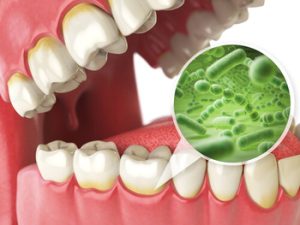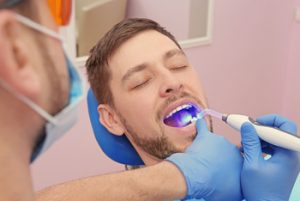Ever caught yourself wondering if your breath smells bad? You’re not alone. It’s something most people worry about at one point or another, especially before an important meeting or a date. Yet, asking someone directly, “Does my breath smell?” can feel awkward and embarrassing. The good news? There are simple ways to check for bad breath on your own and, better yet, effective ways to prevent it.
Let’s explore how to tell if you have bad breath, what causes it, and how to keep your breath fresh and confidence high.
What Exactly Is Bad Breath?
Bad breath, or what’s medically known as halitosis, is a condition where your breath smells unpleasant, either temporarily or persistently. It can be caused by something as simple as the food you eat or as complex as an underlying medical condition.
If you’ve ever felt unsure about your breath, understanding the signs, causes, and prevention can give you peace of mind and help you take better care of your teeth and gums.
Common Signs That Your Breath Might Smell Bad
 Not everyone can detect their own mouth odour. Your nose can become desensitised to your usual scent. But some tell-tale signs may indicate bad breath:
Not everyone can detect their own mouth odour. Your nose can become desensitised to your usual scent. But some tell-tale signs may indicate bad breath:
- People subtly back away during close conversations
- You have a dry mouth or a sticky film on your tongue
- You wake up with a foul taste in your mouth
- You often notice a white coating on your tongue
- Foamy saliva builds up during the day
- Your breath improves after brushing, chewing gum, or eating
If any of these sound familiar, your breath might not be as fresh as you’d like.
The DIY Breath Check: Easy Tests You Can Try
If you’re unsure whether your breath smells fresh, there are a few simple at-home methods that can give you a quick and fairly accurate idea. These self-checks are easy, discreet, and can help you decide if it’s time to freshen up or speak to your dentist.
1. The Sniff Test
Lick the inside of your wrist, let it dry for a few seconds, and then give it a sniff to check for any unpleasant scent. If it smells unpleasant, chances are your breath smells the same.
2. Use a Spoon or Tongue Scraper
Use a clean spoon or tongue scraper to gently clean the back of your tongue, then smell it to check for any unpleasant odour. This is often the most accurate way to detect odorous bacteria that are often found at the back of the mouth.
3. Ask Someone You Trust
This might feel awkward, but if you have a close friend or family member who can give you honest feedback, just ask. It might save you from guessing.
What Causes Bad Breath in the First Place?
Understanding the causes of bad breath helps you take action:
1. Poor Oral Hygiene
Neglecting brushing and flossing twice a day allows food particles to stay trapped between your teeth and gums. This leads to more bacteria, which produce smelly sulphur compounds.
2. Tongue Bacteria
A major source of mouth odour is the back of the tongue, where odorous bacteria thrive. Using a tongue scraper daily can help eliminate these microbes.
3. Dry Mouth (Xerostomia)
Saliva helps cleanse your mouth by washing away bacteria. When you don’t have enough saliva, bacteria build up quickly. This is common among tobacco users, those who breathe through their mouth, or people on certain medications.
4. Gum Disease
Chronic bad breath is often a clear indicator of gum disease, which develops from plaque accumulation and infection in the gum tissue. It can lead to bone loss and serious health issues if left untreated.
5. Tooth Decay and Tonsil Stones
Untreated tooth decay and tonsil stones (hardened debris in the tonsils) can also cause bad breath.
6. Diet or Health Conditions
Eating certain foods, such as garlic, onions, or spicy dishes, can make your breath smell quickly. Some health conditions, like diabetes, liver disease, digestive problems, or acid reflux, can also be behind persistent bad breath.
How to Prevent Bad Breath: Habits That Help
Fresh breath starts with a good dental hygiene routine, but there’s more to it than brushing alone.
1. Brush and Floss Twice a Day
Brush with a soft-bristled toothbrush and fluoride toothpaste, and use floss to remove food particles from between your teeth that brushing alone might miss.
2. Clean Your Tongue
Whether with a tongue scraper or the back of your toothbrush, cleaning your tongue helps reduce bacteria affecting your breath.
3. Stay Hydrated
Stay well-hydrated to maintain moisture in your mouth and support the cleansing flow of saliva.
4. Chew Sugar-Free Gum
Chewing gum helps stimulate saliva production and freshens your mouth naturally.
5. Use Mouthwash Carefully
Antibacterial mouthwashes can help, but avoid overuse of alcohol-based types as they can dry out your mouth.
6. Quit Smoking
Smoking or using tobacco contributes to persistent bad breath, gum disease, and tooth decay. Giving it up can significantly improve your oral health.
Could It Be Something More Serious?
 Sometimes, bad breath is not just about hygiene or what you’ve eaten. If you’ve tried all the tips above and your breath still smells bad, you may be dealing with a medical condition such as:
Sometimes, bad breath is not just about hygiene or what you’ve eaten. If you’ve tried all the tips above and your breath still smells bad, you may be dealing with a medical condition such as:
- Chronic sinus infections
- Stomach acid reflux (GERD)
- Liver or kidney problems
- Uncontrolled diabetes
These medical conditions may require a doctor’s attention. Don’t ignore ongoing symptoms.
Keeping Track: Try a Food Journal
Some people find that specific foods or combinations of meals cause their breath to turn foul. Keeping a food journal can help you pinpoint which items may be contributing to your problem. You might discover it’s not just what you eat but when or how you eat it.
When to See a Professional
If you’ve tried everything and your breath doesn’t improve, it’s time to ask your dentist. They can check for symptoms of gum disease, cavities, or infections. If your oral hygiene checks out, they may refer you to a medical professional for further investigation.
Final Thoughts: Your Breath Doesn’t Have to Hold You Back
Dealing with bad breath can feel isolating, but it’s often easy to treat and even easier to prevent. From improving your oral hygiene to being mindful of diet or health conditions, there are practical ways to regain your confidence.
So the next time you wonder, “How to tell if you have bad breath?” Remember, it’s not just about sniff tests and mints; it’s about understanding your mouth, maintaining a usual dental hygiene routine, and knowing when to reach out for help.
Fresh breath starts with small steps. And the best part? Those steps can make a big difference in your smile and your confidence.
If you’re concerned about persistent bad breath, contact us at Beyond 32 Dental on (02) 9158 6334 to book a thorough check-up and personalised advice.
References
- Mayo Clinic. (n.d.). Bad breath (halitosis). https://www.mayoclinic.org/diseases-conditions/bad-breath/symptoms-causes/syc-20350922
- Healthdirect Australia. (n.d.). Tooth decay. https://www.healthdirect.gov.au/tooth-decay
- Cleveland Clinic. (n.d.). Dry mouth (xerostomia). https://my.clevelandclinic.org/health/diseases/10902-dry-mouth-xerostomia






Recent Comments